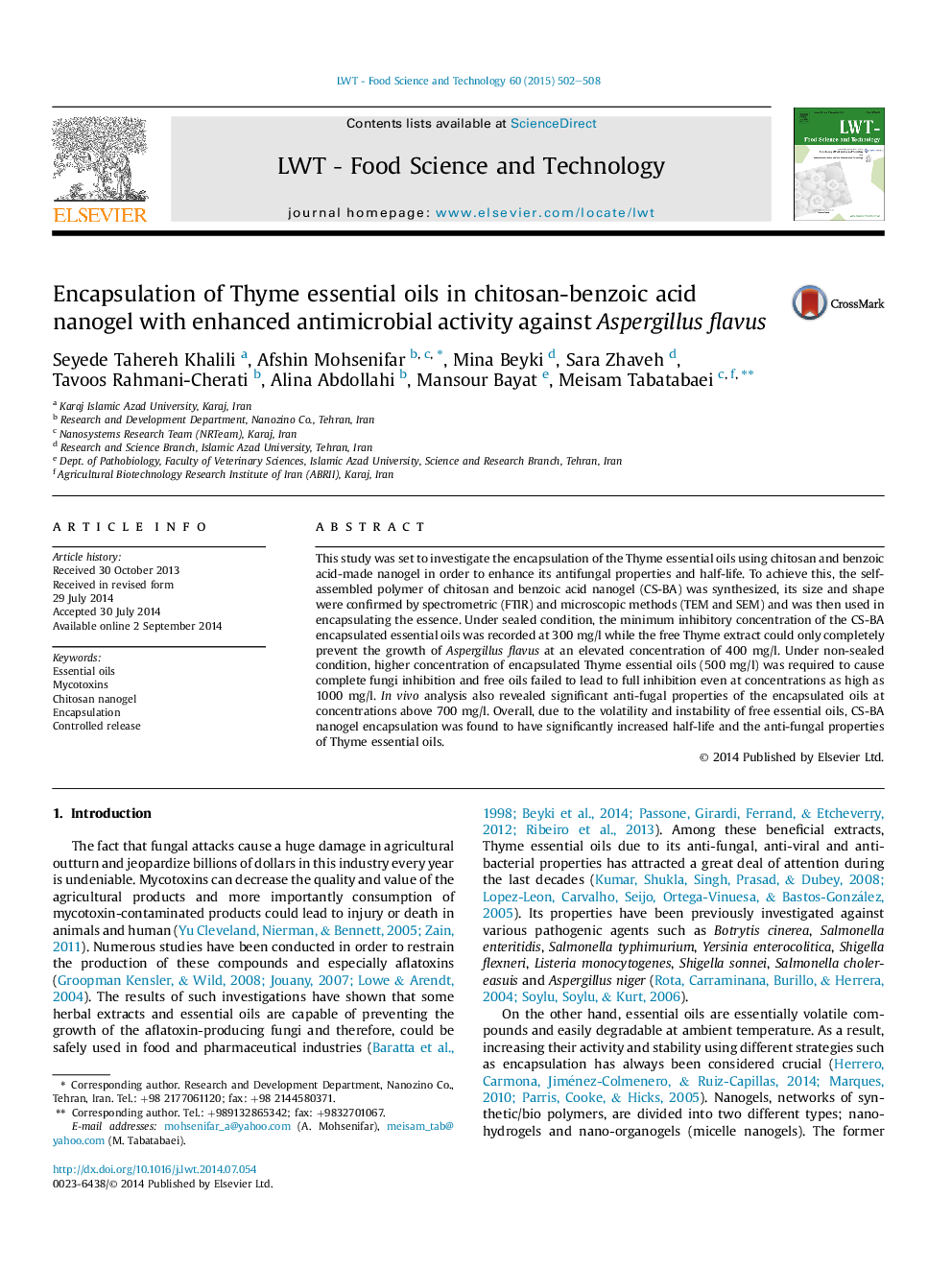| Article ID | Journal | Published Year | Pages | File Type |
|---|---|---|---|---|
| 6402967 | LWT - Food Science and Technology | 2015 | 7 Pages |
Abstract
This study was set to investigate the encapsulation of the Thyme essential oils using chitosan and benzoic acid-made nanogel in order to enhance its antifungal properties and half-life. To achieve this, the self-assembled polymer of chitosan and benzoic acid nanogel (CS-BA) was synthesized, its size and shape were confirmed by spectrometric (FTIR) and microscopic methods (TEM and SEM) and was then used in encapsulating the essence. Under sealed condition, the minimum inhibitory concentration of the CS-BA encapsulated essential oils was recorded at 300 mg/l while the free Thyme extract could only completely prevent the growth of Aspergillus flavus at an elevated concentration of 400 mg/l. Under non-sealed condition, higher concentration of encapsulated Thyme essential oils (500 mg/l) was required to cause complete fungi inhibition and free oils failed to lead to full inhibition even at concentrations as high as 1000 mg/l. In vivo analysis also revealed significant anti-fugal properties of the encapsulated oils at concentrations above 700 mg/l. Overall, due to the volatility and instability of free essential oils, CS-BA nanogel encapsulation was found to have significantly increased half-life and the anti-fungal properties of Thyme essential oils.
Related Topics
Life Sciences
Agricultural and Biological Sciences
Food Science
Authors
Seyede Tahereh Khalili, Afshin Mohsenifar, Mina Beyki, Sara Zhaveh, Tavoos Rahmani-Cherati, Alina Abdollahi, Mansour Bayat, Meisam Tabatabaei,
